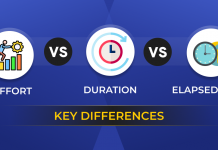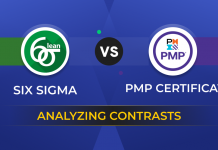
Developing an effective project management system in the current economic scenario can turn out to be a daunting task. Integration projects are one of the most difficult as most teams are situated at different geographical locations, have an uneven talent pool, and follow ineffective communication protocols. Project integration management involves making adjustments among the various objectives and supervising the interdependencies which exist between the knowledge areas.
The Project Management Institute (PMI) has suggested that for a project to be successfully implemented there must be perfect coordination between the different knowledge areas of project management with project integration management being the most important of them all. There are various challenges that have to be overcome in order to achieve coordination of all team members, plans, and resources to complete a project successfully.
Challenges in Establishing Integrated Project Management
-
Lack of Coordination among Different Teams:
There are usually many teams working on a single project and if the project is sanctioned by a global organization, it can encompass numerous teams and applications. Therefore, coordination between these teams should be given the utmost importance. The teams are spread globally and it is very difficult for all the members to meet physically in one particular location. This can lead to difficulties regarding information dissemination and there is a high likelihood of wrong information being communicated to members of the team. Additionally, some critical information may not reach some team members because of their remote location. The lack of coordination can also lead to information leakage which can fall into the wrong hands. The only way this can be prevented is by using technology judiciously and following it up with periodic calls to make sure that the information was successfully received.
-
The burden of Responsibility:
The responsibility for the successful implementation of a project is on the shoulders of the project manager. However, with multiple teams and multiple project managers, it is quite hard to make one person responsible. Non-implementation of a time-tested method to delegate responsibility to both the team members and the managers is resulting in many unproductive team meetings. This is causing a substantial drop in yield and an increase in project overhead. Therefore, it becomes necessary to involve the relevant parties early on in the decision-making process and allocate responsibilities accordingly.
-
Unsynchronized Priorities and Timelines:
Different teams working on the same project are usually assigned different agendas and priorities. However, while assigning them to the teams, the most important aspect which is overlooked is making sure that the priorities of one team are in line with the priorities of other teams in order for the tasks to be easily integrated. Therefore, in addition to team-specific project managers, an overall project manager should be appointed to streamline the process of integrating the work done by different teams. Joint collaboration can be quite helpful in better understanding different teams’ needs and challenges. Finding creative methods of synchronizing their activities can help them achieve their common goal of project completion.
-
Wastage of Resources:
Wastage of resources is a direct result of the delay in coordinating and carrying out the important tasks assigned to a particular project team. Project members are usually distributed globally which hinders effective communication between them. This can affect the implementation schedule which invariably leads to loss of major resources and consequently project failure. The most effective method to tackle this problem is for project managers to come up with effective backup plans, replete with flowcharts depicting exactly what to do in such situations. This can reduce wastage considerably and result in effective project implementation.
-
Difficulty in Decision Making:
For management decisions to be effectively designed and executed, accurate information is quite essential. With so many teams working on a project, differences in choices and opinions are bound to arise. Taking a mutually agreeable decision can be quite taxing for the team. In this scenario, it becomes very important for the team to follow Tuckman’s group development model to carry out the project in an accurate and efficient manner. Compromising on their mutual constraints regarding geographical location and communication deficit and indulge in effective methods such as teleconferencing to arrive at a decision that benefits the entire project. Teamwork and cooperation are the stepping stones to overcoming challenges and completing the assignment successfully.
-
Lack of Necessary Skill set:
A project is divided across different teams who contribute to different areas of development. Each of these teams has trained professionals who have a particular set of skills required for the completion of the project. However, once in a while few aspects of the project might be completely new to the team members who are not trained to carry out the task. The most skilled and experienced members will also struggle to handle the challenge. Therefore organizations must allocate the most important tasks of the projects to teams who have members trained in multiple disciplines.
-
Lack of Motivation or Interest:
No project team is perfect. Most of them lack the motivation required to carry out the task at hand. This can be a result of factors such as bad project managers, low quality of work culture, and wrong methodology of training and implementation. This can lead to delays in projects or in extreme cases project failure. Therefore, it becomes necessary for organizations to study the reasons which are resulting in low levels of team motivation and devise successful motivation techniques for individual project settings.
The most important aspects needed for tackling these challenges and successfully completing a project are multi-disciplinary teams, wise compromises by undertaking cost or benefit analysis, upper management oversight, dedicated teamwork, modernization where necessary, cooperation, and involving key representatives from each team throughout the process.














